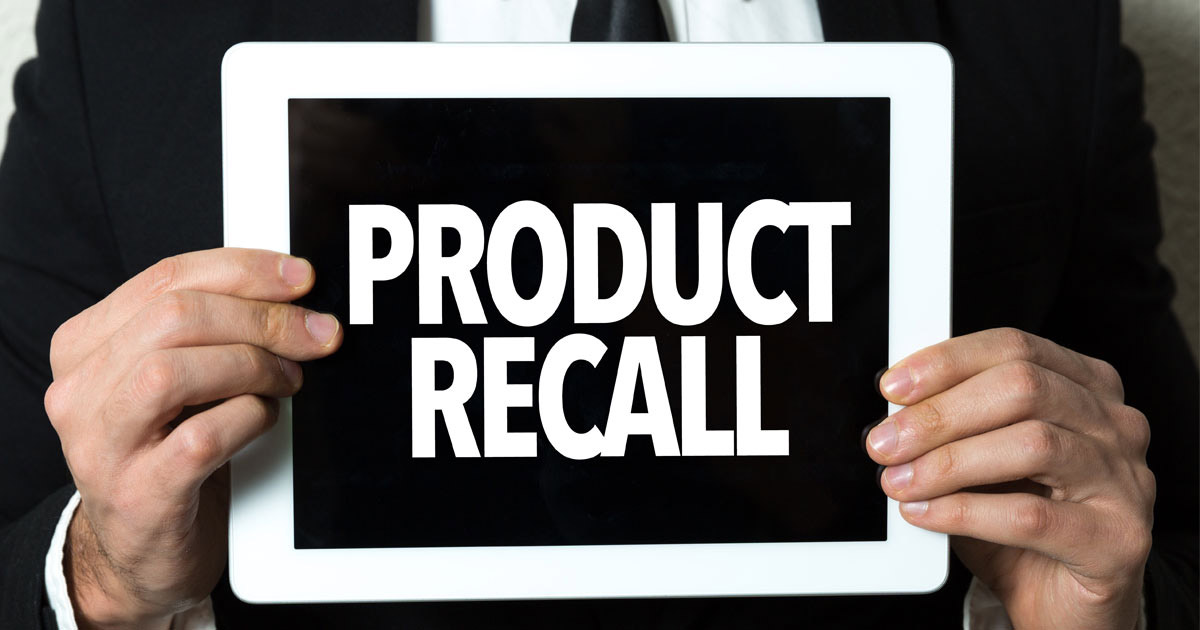MENU
- Home
- Overview
- Attorneys
- Practice Areas
- Firm News
- Blog
- Contact

When a product is found to be defective or dangerous, the manufacturer often issues a recall. A producer on the market has a legal duty to handle unanticipated dangers in a responsible and forthright manner. Responsible companies should formulate plans to obtain consumer information regarding the recently revealed dangers in order to issue proper recalls.
A product recall is an action taken by a company that informs consumers of an imperfection in their product that may impact its effectiveness or present previously unknown dangers. Usually, a product recall is initiated on the part of the manufacturer or producer in an attempt to protect customers. Sometimes, however, the companies involved may be pressured into issuing a recall by government entities.
An organization that makes product safety a priority will implement elements of consumer protection throughout the design, manufacturing, and testing stages. If a consumer goods company finds the need to issue a recall, however, many steps need to take place to remove the product from markets.
First, the company should prepare for a possible recall well ahead of time by keeping records of sales. This important information should be collected for all distribution channels as well as for end users. Ideally, a registration form will be included in a product’s packaging to a costumer. This provides an easy way for a customer to share their contact information in case there is a warranty issue or a recall.
When customers cannot be contacted directly, public notifications should be used to provide information about the recall. The company should be forthcoming with all information about the problems of the product and what customers can do to rectify the situation. The company aiming to remove a defective or dangerous product from the market should have a plan to offer a replacement or refund to affected customers.
Some companies that recall their products recognize and report defects because of parts that were acquired by separate companies. The parts supplier may issue a related recall of their own. The two companies may work in tandem to address the consumer safety issues to achieve success.
An online notice on the company’s main website is recommended, as well as notices on the sites of distributors and other partners. Follow-up notices may be necessary to ensure that information about the recall reaches as many distributors and users as possible.
An organization that recognizes the need to issue a product recall will likely consider the costs associated with the removal. Typically, a company that produces consumer goods will have an insurance policy to protect against monetary losses due to product recalls, such as the costs for mailings and public postings.
The manufacturer may have legal costs related to claims against component suppliers that bear liability for the recall. Likewise, costs for legal counsel are inevitable if the company requires a defense team to fend off allegations of its own neglect. The organization may also spend money on a public relations specialist to manage public messaging and company image.
Some costs of the company may be more than monetary. The organization risks its reputation if it mishandles a consumer recall. Any resulting media press can reduce public trust in the company, affecting the business long after the recall is over.
The redirection of company resources and the potential costs to public image can be hard for a company to combat. However, handing the situation effectively can present a valuable opportunity to eliminate potential harm to customers as well as the company.
Handling a recall respectably and successfully can have a positive impact. A proper recall plan can lessen negative views by current and prospective customers.
Companies that face the choice of whether or not to issue a product recall may fear that they will diminish their reputation by admitting there is a problem with their product. However, if the company chooses to ignore the dangers of a defective product, they are putting the business and consumers at great risk.
If a company neglects to act appropriately to a serious product issue, the organization may risk serious legal problems, including charges by government prosecutors.
A responsible company will have an effective recall plan. It is important that companies prepare for potential issues with their products. By incorporating a recall plan, a company can reduce the risk of injuries. Additionally, a recall plan will help protect a company’s reputation.
If a consumer is hurt by a defective product, they should speak to a lawyer about filing a products liability claim. A lawyer will collect necessary evidence and protect the rights of their client. Dangerous products can cause severe, costly injuries, so it is important for a victim to obtain compensation for their financial losses.
If a company fails to have a successful recall plan, consumers will be at risk. If you were injured by a dangerous commercial product, contact one of our accomplished Delaware products liability lawyers at Jacobs & Crumplar, P.A. We understand that defective goods cause serious injuries, and we hold negligent companies responsible for their actions. Complete our online form or call us at 302-656-5445 for a free consultation. Located in Wilmington and Millsboro, Delaware, we serve clients throughout Dover, New Castle County, and Sussex County.